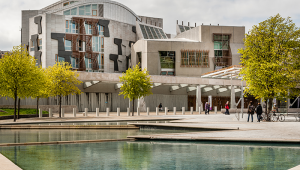According to Scottish Local Government Finance Statistics 2015-16, published today, Scotland’s 32 unitary authorities ended the financial year with an aggregate revenue surplus on service provision of £0.45bn, up £100m on the previous year; and with combined reserves of £1.34bn, an increase of £74m or 5.8% over the year.
The increase in reserves includes £30m transferred from the revenue surplus, with the bulk of the surplus going to fund capital expenditure. Capital spending across the year was £2.54bn, up 5.6% on 2014-15. Of this total, 83% was spent on new buildings or enhancements to existing buildings.
Councils spent a total of £10.1bn on services, the report says. This was up 0.7% on the previous year, with the main increases arising in education, where net expenditure was £4.7bn, and social work, up 1.9% to £3.2bn.
The figures follow hard on a tough Budget round for the year ahead, in which finance secretary Derek Mackay was forced to restore £160m of planned cuts to councils. Mackay said today that the figures showed that “the Scottish Government continues to treat local government very fairly at a time of continuing austerity from the UK government.”
He claimed that the effect of the Budget now agreed for 2017-18 would be to increase the funding potentially available to councils by £400m in cash terms and £250m in real terms. This figure, he acknowledged, includes potential increases in council tax and transitional support for the merger of health and social care.
The figures also contrast somewhat with a report last week under the Local Government Benchmarking Framework, which showed a real terms fall in council spending over the past six years of 11%, including a 4% fall in education spending. The biggest proportional cut was in roads maintenance, down 21% over the period.
Meanwhile, ministers have indicated that controversial legislation to reform the governance of schools in Scotland is unlikely to be spelled out until after May’s local government elections. The outline plans include new regional oversight bodies and more power devolved directly to individual schools, prompting some in local government to fear a power grab from the current council control.





















